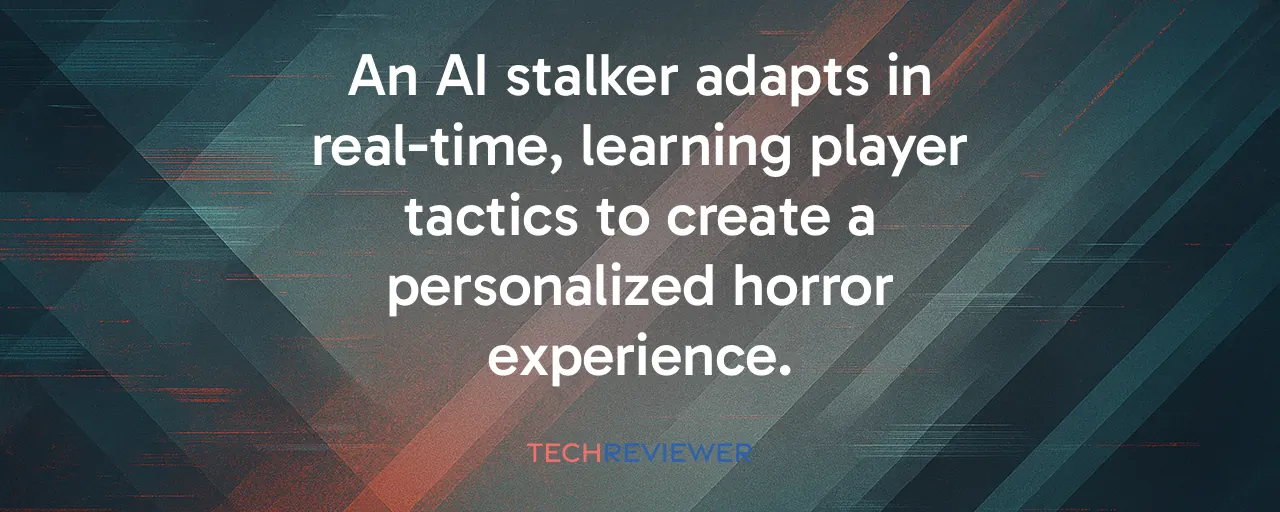A Predator That Knows You
At Gamescom 2025, Capcom unveiled a chilling twist for Resident Evil: Requiem, set to launch in 2026. The star of the show wasn't a new weapon or haunted mansion but a stalker enemy powered by artificial intelligence that studies your every move. This video game monster is unlike others. It watches how you escape, tracks where you hide, and even learns to smash through your favorite safe spots. Demo footage from August 21 showed the creature retreating from bright spotlights only to return later, shattering ceiling lights to plunge players back into darkness.
What makes this stalker stand out is its brain. Built into Capcom's RE Engine, the AI uses reinforcement learning to adapt in real time, all without needing a cloud connection. It fits into a lean 12 MB of VRAM, meaning it runs smoothly on PS5, Xbox Series, and high-end PCs. Players who looped around ladders to dodge it found the stalker cutting off those paths on their next try. It's a technical marvel, but it's also sparking heated debates about where horror games are headed.
Immersion Meets Uncertainty
The promise of Requiem's stalker is a horror experience that feels personal. Unlike the relentless Mr. X in Resident Evil 2 Remake, who followed predictable patrol routes, this AI evolves with you. Testers at Gamescom reported wildly different chase patterns on their second playthroughs. One journalist hid in a closet, only to find the stalker lingering nearby, as if it knew their go-to tactic. Capcom says this keeps tension high, replacing scripted jump scares with a foe that feels alive.
However, a challenge emerges. Some players worry the AI's unpredictability could tip the scales too far. If the stalker learns too well, it might feel unfair, especially for those who thrive on mastering game patterns. Alien: Isolation's xenomorph, a 2014 benchmark for pursuit horror, balanced terror with consistent behaviors players could outsmart. Requiem's stalker, by contrast, might leave you second-guessing every move, which could thrill or frustrate depending on your playstyle.
Lessons From the Past
Looking back, Resident Evil has a knack for evolving its monsters. Nemesis in the 1999 RE3 set the stage for enemies that hunted players across maps. The 2019 RE2 Remake refined this with Mr. X, whose heavy footsteps became a fan-favorite terror. But neither adapted to individual players in real time. Alien: Isolation came closer, with an AI that reacted to noise and movement, yet it relied on pre-set rules rather than learning on the fly.
Capcom's new approach draws a clear lesson from these predecessors: static enemies risk becoming predictable. By making the stalker learn, Requiem ensures no two playthroughs feel the same. Isolation's success, however, teaches another truth: players need some control to avoid feeling helpless. Capcom could borrow a page here, perhaps adding an AI aggression slider, as experts suggest, to let players tweak the stalker's intensity without breaking immersion.
The Ethics of Fear
Beyond gameplay, Requiem's AI raises bigger questions. Developers at Capcom argue it enhances replayability, but some players and academics see a gray area. The stalker's telemetry tracks your actions, like which doors you use or how often you rely on light to fend it off. While stored locally to avoid privacy risks, this data could still reveal detailed playstyle patterns. Regulators in the EU and U.S. are already eyeing whether such systems manipulate emotions too aggressively, especially for younger players.
Child-protection advocates point out that sustained fear could overwhelm some audiences, prompting calls for clearer age ratings or consent warnings. Academic researchers studying game design ethics suggest transparency, like disclosing how much data the AI collects or offering difficulty overrides. Capcom's challenge is clear: deliver a heart-pounding experience without crossing into exploitation.
What's Next for Horror Games
Requiem's stalker represents more than a singular event. It signals a broader shift in horror games, where AI sophistication is becoming a selling point. Indie studios often lean on simpler behavior trees, but AAA titles like Requiem are betting big on adaptive models. Console makers, too, are spotlighting on-device machine learning to justify next-gen hardware. If Capcom nails this, it could set a new bar for the genre, much like Left 4 Dead's AI Director did in 2008.
However, the road ahead isn't smooth. Training these AI models burns through cloud GPU resources, and developers are challenged to balance unpredictability with fair storytelling. Other studios, like Tango Gameworks or Bloober Team, are watching closely, and some may adopt similar tech if Capcom shares its tools. For players, the payoff could be richer, scarier worlds, as long as developers keep fairness and ethics in sight.
